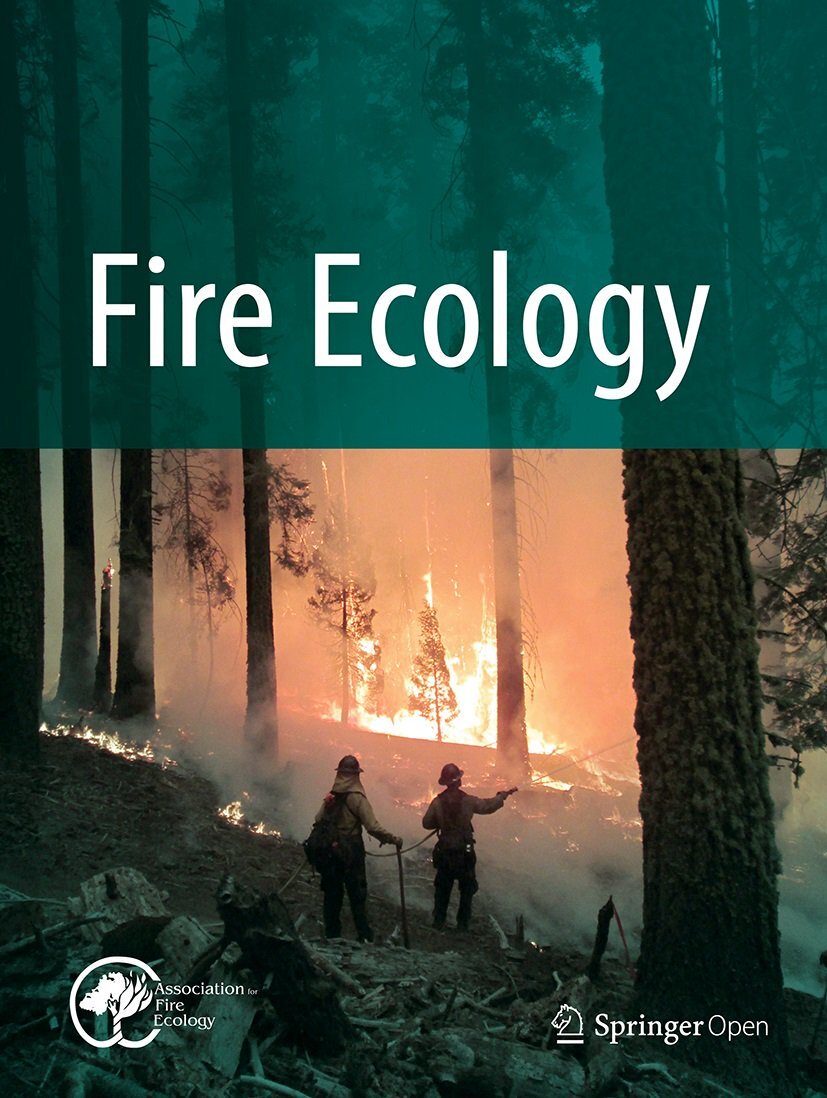Promoting Fire Ecology Research, Education, and Management
The Association for Fire Ecology is an international organization dedicated to improving the knowledge and use of fire in land management. We are scientists, educators, students, managers, practitioners, policymakers, and interested citizens helping to shape the emerging profession and growing field of fire ecology.
AFE news
Proposals will be accepted for special sessions, workshops and trainings, and fire circle discussion groups until May 15th, 2025. Submit yours today and we’ll see you at the 11th International Fire Ecology and Management Congress 2025!
Fire CAFÉ webinars are 1 hour, online discussions hosted by the Association for Fire Ecology. We are accepting proposals now!
We are dedicated to supporting the wildland fire community and making it clear that the global fire crisis will not be solved by lack of funding, resources, or people. Click to read AFE’s statement on recent US federal actions.
Register for Tall Timbers FREE smoke course for two Category 1 Continuing Education Credits
Congratulations to the individuals who were certified in 2024 through AFE’s Wildland Fire Professional Certification Program!
We had a wonderful week in Santa Fe, New Mexico with 470 attendees at the 4th Southwest Fire Ecology Conference!
December 3 is #GivingTuesday and the start of AFE's End-of-Year Giving Campaign. There are several ways you can support our organization on this global day of giving!
On behalf of the fire science community, the Association for Fire Ecology has sent a letter of support for the National Prescribed Fire Act of 2024 to Senators and Representatives.
The proposed legislation for the National Prescribed Fire Act (H.R. 8557/S. 4424) is a significant investment in US forests and contains critically needed policy changes for addressing the current wildfire crisis.
fire ecology Journal
An article recently published in Fire Ecology examines using herbivory as a supplement to prescribed fire in areas with limitations.
Upcoming EVENTs
Save the date for the 11th International Fire Ecology and Management Congress in New Orleans, Louisiana!
SAFE Chapter News
The article interviews AFE member Brad Washa, assistant professor of wildland fire science at Utah State University, and Kyle Hamilton, USU SAFE President and fourth-year forest ecology and management student.
Northern Rockies Fire Science Network talked with members of two SAFE organizations to get their perspectives on the benefits and potential of student fire associations in the region.
Welcome to the 2025 National SAFE Officers, Badri, Angie, Leo, and Mayowa! Thank you for voting to elect our 2025 to 2026 National SAFE Officer cohort.
LATEST JOB POSTINGS
The National Association of State Foresters seeks a Vice President of Fire Programs who will be a team leader, convenor, and principal advisor to provide subject matter expertise, analysis of wildland fire issues, and develop communications and policy positions relating to wildfire.
This role at the Nature Conservancy will “elevate Indigenous-led priorities across global and national policy forums, build and nurture key partnerships, and ensure TNC’s internal alignment to center Indigenous rights, self-determination, and local leadership in conservation.”
The Nature Conservancy seeks an Indigenous Right Relations Director to oversee all aspects of the Indigenous Right Relations program including the Buffalo Restoration Program, the Land Return & Stewardship Initiative, and numerous other projects.
The Wildfire Mitigation Specialist at the Waikōloa Dry Forest Initiative will work with “staff, adjacent landowners, and partners to plan, prioritize, and implement wildfire mitigation and fuel reduction activities that protect natural resources and reduce impacts to the surrounding community.”
afe podcast: Fire Ecology Chats
Madeleine Lopez, Jeffrey Kane, and David Greene discuss how non-serotinous conifers persist on the landscape following high-severity fire.
Caden Chamberlin and Marc Meyer discuss evaluating the capacity of contemporary wildfires for restoring forest structural patterns.
Dana Johnson and Thea Whitman discuss how wildfires influence boreal forest soil carbon cycling.






















The USDA Forest Service Research and Development is proud to host a series of SCIENCEx Fire panel discussions intended for fire, fuels and land managers on topics associated with the Wildfire Crisis Strategy and beyond.